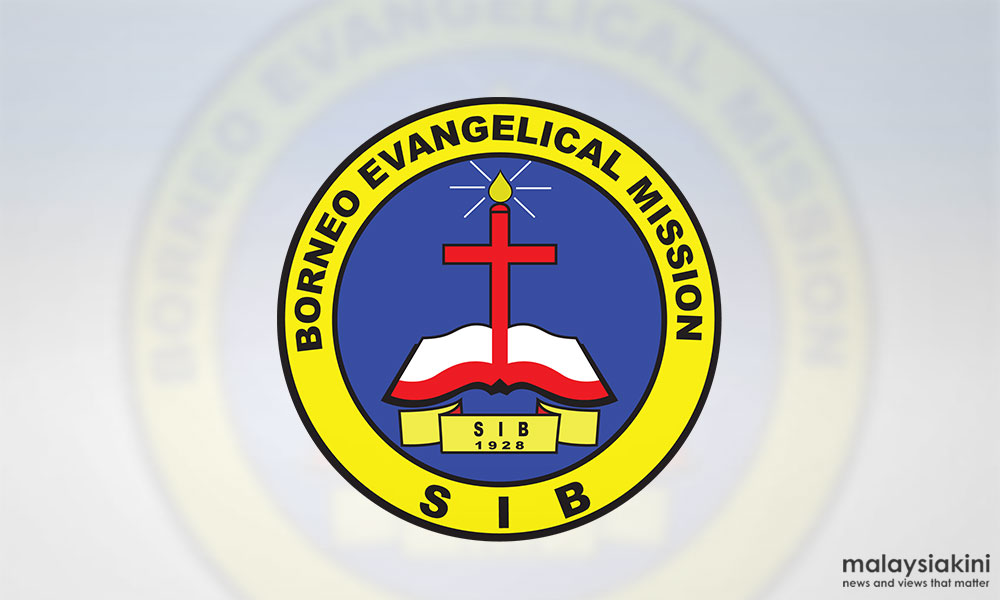
Sidang Injil Borneo (SIB) has put in a request for various documents that led to a 1986 Cabinet decision to not allow non-Muslims to use the word “Allah” and three other words.
Lim Heng Seng, representing SIB, told the Kuala Lumpur High Court that the discovery application is important and relevant to SIB, as it wants to know the literature, papers, letters or reports that led the government to decide on the blanket ban.
Lim said that the Christian community in Sabah and Sarawak had been using the word “Allah” in their prayers for over a hundred years, and that according to a religious expert, about 60 percent of Christians used Malay as their prayer language.
“We are challenging the constitutionality of the government's decision to impose the ban, as it affects the rights of non-Muslims, especially the Christians in Sabah and Sarawak who use (the term).
“The respondents (the Home Minister and the government) prohibited the use of the word ‘Allah’ following a government circular in 1986 that prohibited the use of the word for non-Muslims. They cited public security as a reason for the ban.
“Hence, the government should show the papers, literature, letters or reports that the Cabinet relied on to decide that it affects public security. Are there (police) reports lodged or otherwise to establish if affected public order?” he asked.
Lim also said that since the case involved public interest, the court should allow the discovery order for a just disposal of a judicial review application.
Do not use OSA as reason
Lim further told the court that the government cannot use the argument that such documents are protected under the Official Secrets Act 1972 (OSA) to prevent it from being produced.
He claimed that Section 36(1) of the Government Proceedings Act 1956 states that the government may be required by the court to make a discovery of documents and produce it for inspection, provided it is to answer a question of public interest.
“The court has the power to call for the documents, examine them, and determine the validity of the claim. A mere assertion of confidentiality and that the affairs of state were involved without evidence in support cannot shut out relevant evidence in the administration of justice,” he said.
SIB’s dropped its other application to cross-examine a Home Ministry official over a 2007 seizure of books, since it is challenging the constitutionality of the seizure under Articles 3, 8, 11 and 12 of the Federal Constitution.
In his affidavit in support of the discovery application, SIB Sabah president Jerry Dusing said that a ministry official had claimed that the issue of SIB's constitutional right did not arise, as the ministry wanted to preserve public order and avoid confusion between Muslims and Christians.
Dusing also stated that there were no untoward incidents affecting public order and security in the use of “Allah,” which the return of the seized books in 2008 manifestly demonstrated.
No need for discovery
Representing the Home Ministry and government, senior federal counsel Shamsul Bolhassan said there was no need for the discovery, as the documents are part of Cabinet minutes and hence under OSA.
He added that the reply given by Home Ministry official Yaacob Samat dated Oct 24, 2007 sufficiently explained the reasons for the ban and the return of the seized books, and that there is no need for further discovery.
In Yaacob’s letter of reply, it is stated that although Islam is the religion of the Federation under Article 3 of the Constitution, each religion is allowed to manage its own affairs.
The letter also noted that differences in words and number of words banned by state jurisdictions had resulted in confusion – especially with regards to Christian prayer materials or literature brought from Indonesia – which necessitated federal control.
“The difference in words and number of words that cannot be used in the state legislation had caused confusion and disorder in the society thus requiring enforcement to control such publication,” Shamsul said, adding words like “Allah,” “Kaabah,” “baitullah” and “solat” cannot be used in non-Muslim printed materials.
“However, the words can be used in churches only, and not in other places,” the letter states.
Given that Cabinet minutes are classified under OSA, and that the letter fully explained the reasons behind the decision, Shamsul insisted there is no need for discovery to be allowed, as it is clear the government acted in the interest of public order.
“If they want to know the reasons they have to argue it out on the merits of the judicial review proper, where they can challenge the decision-making process and their contention that what was done is unconstitutional,” he said.
Lim replied that the government only said that the terms may cause “confusion,” but that confusion does not equate to public disorder.
Justice Nor Bee Arifin deferred in fixing a date for the application.- Mkini


No comments:
Post a Comment
Note: Only a member of this blog may post a comment.